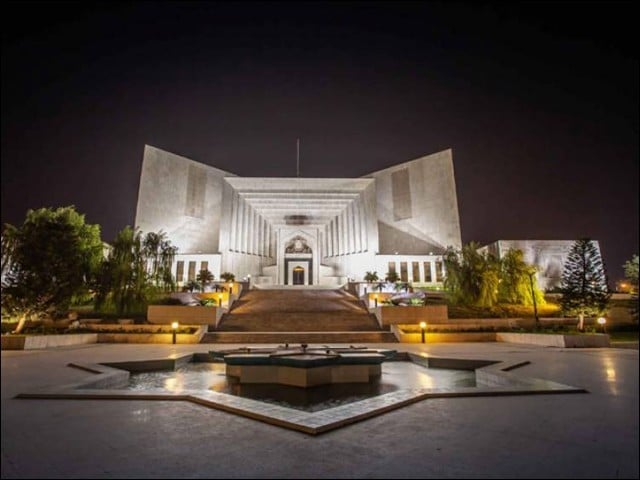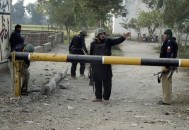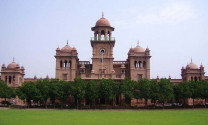CJP blows holes in review law
Top judge wonders if new law made in haste

Chief Justice of Pakistan Umar Ata Bandial on Tuesday highlighted certain loopholes in the Supreme Court (Review of Judgments and Orders) Act 2023.
He noted that a “super appeal” had been created through this law.
“Don’t you think they should have made this law carefully rather than hastily?” the CJP asked PTI lawyer Ali Zafar.
The top judge observed that parliament could have given effect to Article-187 of the Constitution to ensure complete justice in a review jurisdiction.
Justice Bandial referred to the example of India, where a review jurisdiction was widened on two grounds.
The CJP noted that through this law, the legislators had created a jurisdiction of a review equal to an appeal.
A three-member special bench of the SC, headed by the CJP, was hearing cases related to the Review of Judgments Act and Punjab elections revision.
The SC clarified that it would hear the petitions against the Review of Judgments Act first and the Punjab election revision case later.
The court accepted the request of the Election Commission of Pakistan’s (ECP) lawyer to keep the Punjab elections case pending until it decided the Review of Judgments Act.
The CJP remarked that the court had already suspended one law and could not put off another one again.
The petitioner’s lawyer, while presenting his arguments, said the Review of Judgments Act should be suspended and set for a hearing before an eight-member larger bench.
The judges kept smiling at this argument of the lawyer.
Read Suo motu domain of SC, not just CJ’s: Justice Isa
The lawyer further contended that there were similarities in many clauses of the Review of Judgments Act and the SC (Practice and Procedure) Act.
The CJP asked him to explain what was similar in both the laws.
The lawyer replied that the Review of Judgments Act was against Article 10-A and it also interfered with the independence of the judiciary.
He added that the objective, which was not achieved by the Practice and Procedure Act, was now being sought to be acquired under the Review of Judgments Act.
Justice Munib Akhtar pointed out that both laws were related to separate jurisdictions.
During the hearing, PTI's Zafar requested to be a party in the case.
The court immediately accepted his request and allowed him to present his arguments.
Zafar argued that the SC had the power to review decisions.
He added that there was a presumption of finality of SC judgments while evidence could not be revisited in a revision.
The PTI lawyer maintained that the jurisdiction of a revision was limited to a hearing.
He continued that the jurisdiction of a revision could not be the same as that of an appeal.
Justice Akhtar asked him that the nature of review had not been changed by the Act.
Zafar told him that under the new Act, a revision had been given the same power as an appeal.
Justice Akhtar asked Zafar what would happen if the full court rules were changed tomorrow.
The PTI lawyer replied that even the rules would not take precedence over the Constitution.
He added that if such laws were continued to be made, perhaps the law of a second appeal would be introduced tomorrow.
Zafar continued that if the right to repeated appeals was given, the decisions of the SC would not be final.
The hearing of both the cases was adjourned until Wednesday (today).



















COMMENTS
Comments are moderated and generally will be posted if they are on-topic and not abusive.
For more information, please see our Comments FAQ